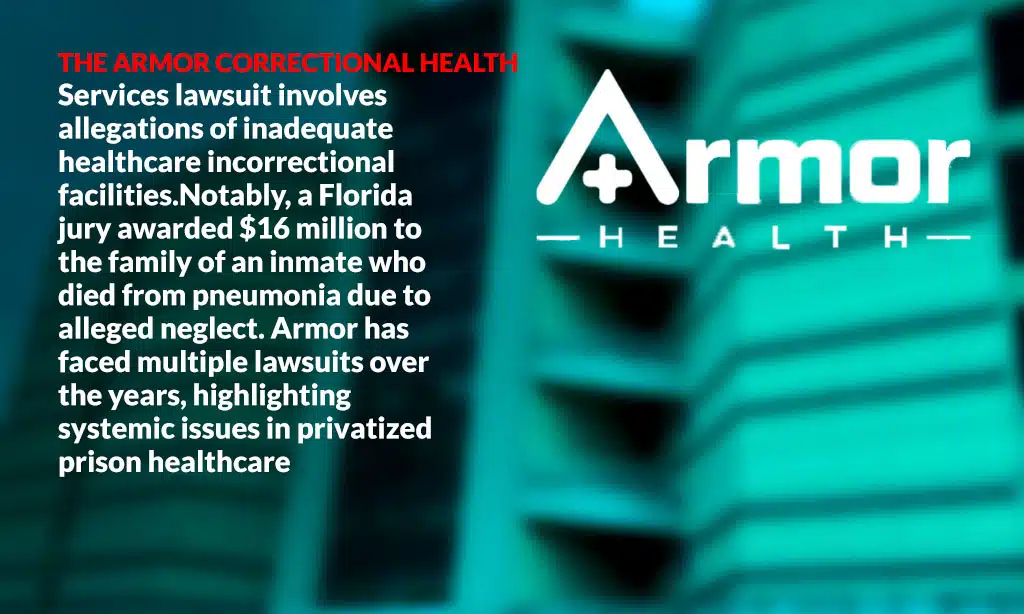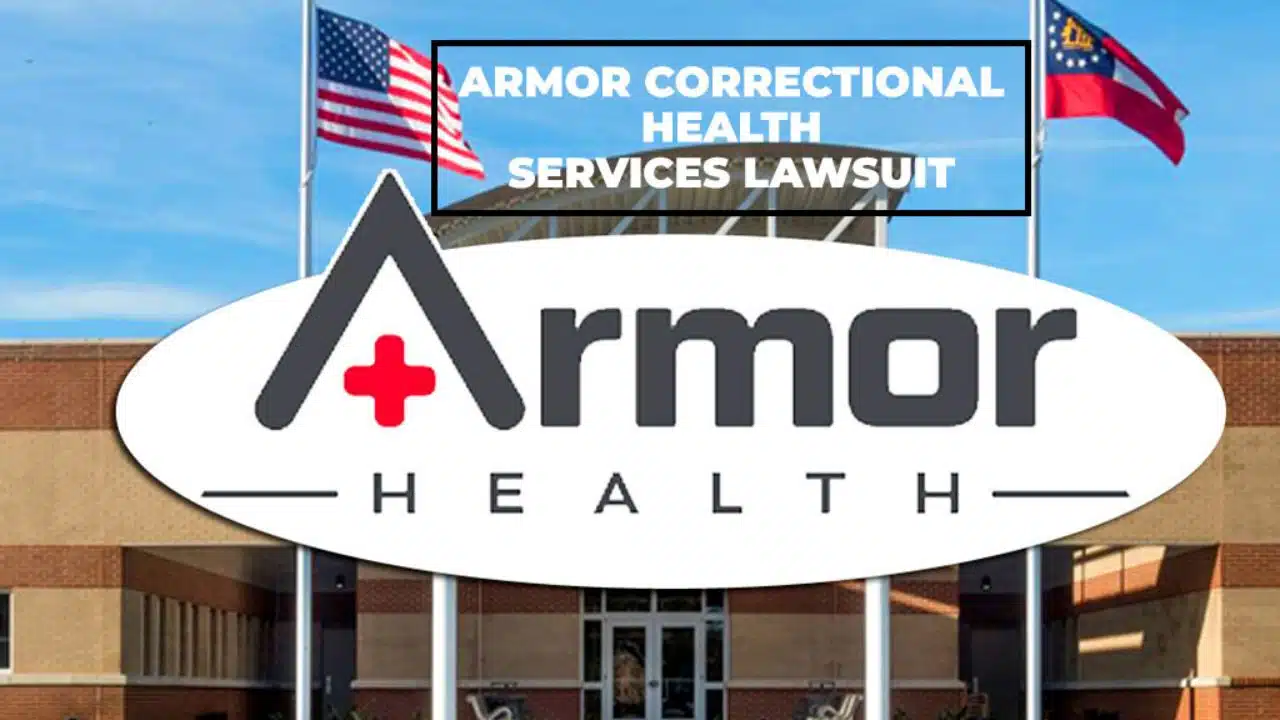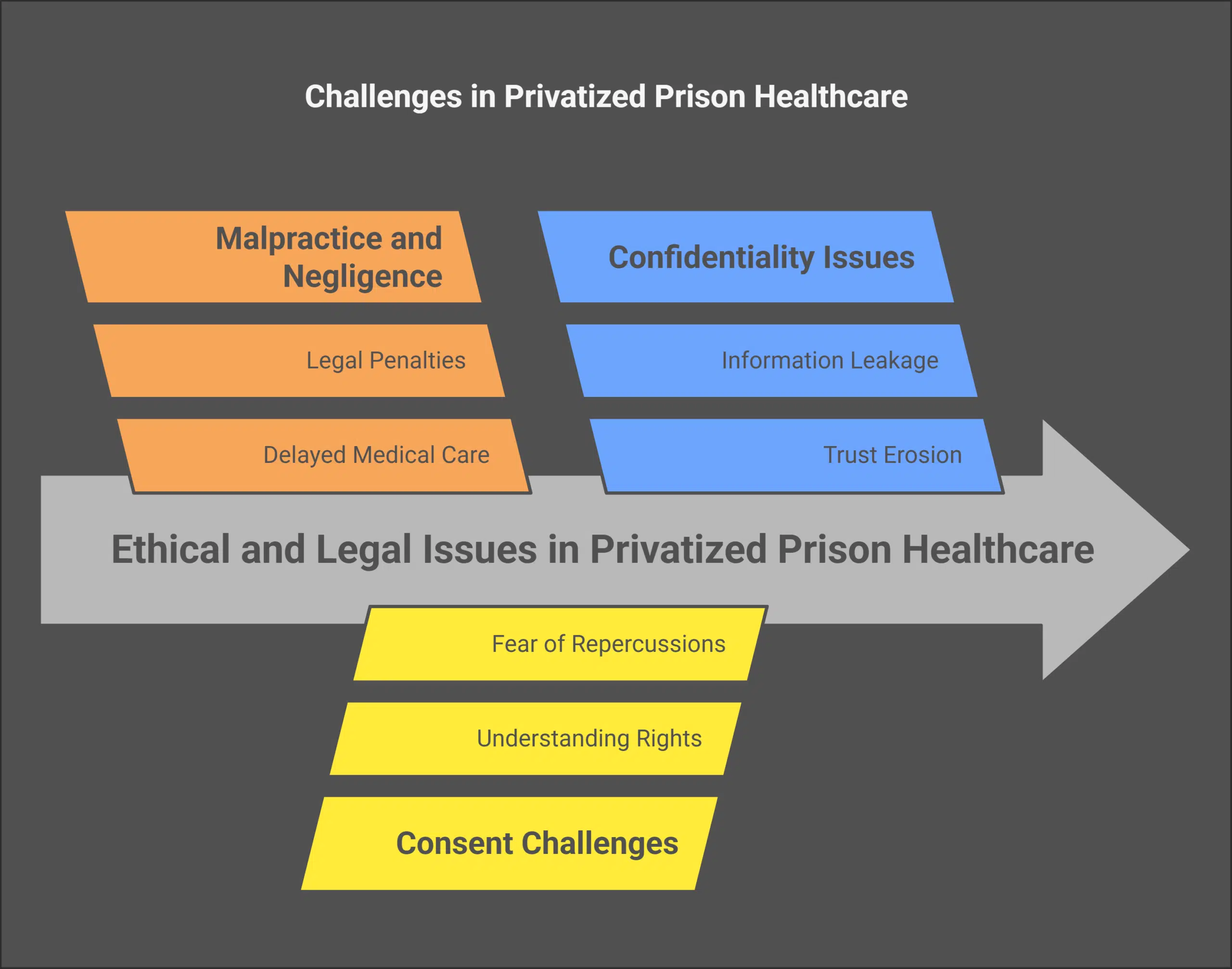Healthcare in jails is a big topic. People often talk about how inmates get medical care. One such discussion revolves around the armor correctional health services lawsuit. This case highlights some problems with healthcare behind bars.
In 2016, a jury found Armor Correctional Health Services at fault in a $16 million medical malpractice case. It was for not giving proper care to an inmate who died from pneumonia.
This fact alone makes us want to look closer at what happened and why. Our blog will dive into the key issues, legal fights, and outcomes of this situation. We aim to explain things clearly and simply.
Keep reading to learn more.
Overview of the Armor Correctional Health Services Lawsuit
Armor Correctional Health Services, a company in charge of healthcare in jails, has been sued many times. This blog looks into the armor correctional health services lawsuit that caught everyone’s eye—a case where they had to pay a lot because they did not take good care of someone.
In Santa Rosa County, Florida, a jury decided Armor Correctional Health Services should pay $16 million for medical mistakes. This was after Misty Williamson died from pneumonia that got worse and turned into sepsis while she was in jail in 2016.
Later, the amount they had to pay was lowered to $6 million. Since starting in 2004, Armor has been taken to court nearly 600 times across the country. The company looked after health services at Santa Rosa County Jail from 2012 until 2018 but lost the job afterward.
Next up: let’s dive deeper into some major legal battles involving Armor Correctional Health Services.
Key Legal Cases Involving Armor Correctional Health Services

Armor Correctional Health Services faced serious court battles. These cases shine a light on big issues in prison health care.
Florida Jury’s $16 Million Verdict
A jury in Florida made a big decision. They said Armor Correctional Health Services must pay $16 million for a sad case. Misty Williamson, who was 44 years old, got very sick in jail but did not get to the hospital fast enough.
She first told them she felt really bad on December 9, 2016. Then it took until December 14, 2016, before they moved her to a hospital.
The court later said no to $10 million of that money for punishment reasons because of a rule in Florida (Statute 768.72). This case has its own name now: Williamson v. Armor Corr.
Health Servs., found in the legal papers from Florida this year (2023 Fla. Cir. LEXIS 1433).
Herr v. Armor Correctional Health Services, Inc.
James Herr was 71 years old. He worked as a psychologist. He died in Volusia County Jail in 2015. Herr had been there for seven days after a standoff with police. His death was due to hypertensive heart disease.
The court said Armor Correctional Health Services, Inc., could not end the lawsuit early with a motion for summary judgment. This meant the case against them would go on.
The case is known as Herr v. Armor Correctional Health Services Inc., under Case No. 6:19-CV-394-ORL-37EJK. It deals with big issues like medical care and responsibility within jails.
Armor provided health services at the jail where Herr died because they did not take good enough care of him, according to his family’s claims.
People of the State of New York v. Armor Correctional Health Services
The New York Attorney General sued Armor Correctional Health Services. This happened because the company did not take good care of people in jails. The lawsuit led to a big change.
Now, Armor cannot work with prison healthcare for three years. They agreed to this to settle the case.
Armor also got into trouble in Milwaukee, Wisconsin, in 2018. They were guilty of not caring properly for inmates and lying about medical records. These actions showed they did not follow rules that protect prisoners’ health and safety.
Ethical and Legal Issues in Privatized Prison Healthcare
In the world of private prison healthcare, tough questions arise about right and wrong care. Doctors and nurses face challenges in giving good health services while obeying laws. Read on to learn more about this tricky balance.
Malpractice and Negligence Claims
Armor Correctional Health Services has been in hot water with nearly 600 lawsuits since starting in 2004. These legal fights focus on bad medical care, deaths that could have been stopped, and breaking job laws.
Their biggest problem? They often didn’t provide fast medical help when needed, especially during the COVID-19 crisis at Duval County Jail.
People accused Armor of not caring enough about those in jail or prison. This includes not giving timely care for serious health issues like heart problems or infections.
The law says ignoring patients’ needs this way is wrong and can lead to big penalties under terms like “deliberate indifference” and “medical malpractice.” So Armor faces challenges for failing their duty to keep patients safe and healthy, from everyday health checks to emergency responses during a global pandemic.
Consent and Confidentiality Challenges
Moving from issues of neglect, we face problems with consent and keeping patient info private. In prisons, getting permission for treatment is tricky. Patients might not understand their rights.
Or they may fear saying no to care. This makes true consent hard to get.
Keeping health details secret in jails is another big worry. With many people around, it’s easy for information to slip out. This breaks trust and can harm the patient’s safety and privacy laws like HIPAA try to protect these rights but in jails, it’s much harder.
Financial and Operational Repercussions
The lawsuit hit Armor Correctional Health Services hard, shaking its money and how it works. It made them look at their contracts and the cash they had to give out for legal stuff.
Dive in to see just how big a wave this case caused…
Impact on Contracts and Revenue
Armor Correctional Health Services faced big problems. The Virginia Department of Corrections ended their deal with Armor. They said goodbye because Armor did not give good care. Other places in Texas and Florida did the same.
This means less money for Armor.
Losing contracts hurts Armor’s future chances too. It’s hard to get new deals when everyone knows you didn’t do well before. This situation makes it tough for businesses and lowers how much money they make.
Legal Fees and Settlements
Legal fees and settlements have hit Armor Correctional Health Services hard. They had to deal with a lot of money issues because of lawsuits. For example, the COVID-19 outbreak at Duval County Jail led them to pay $6.3 million.
This was not their only big bill. In 2018, they paid $170,000 for one case and $40,000 in Arizona for another. Paying out this much hurts their bank account and makes it tough to keep going.
They decided to file for court protection to handle over $150 million in debts. This move shows how legal challenges can drain resources fast. It forces companies like Armor Correctional Health Services to rethink how they work.
The next part talks about their response and what happens now in ongoing legal fights.
Armor Correctional Health Services’ Response and Ongoing Legal Battles
Armor correctional health services lawsuit faced many court fights. They tried to protect their business by asking a court for help to sell off parts of it. This did not stop legal problems. Courts did not agree with Armor’s request to end the lawsuit early in Herr’s case.
Critics hit hard during the health crisis. They said Armor was too slow to give medical care, causing more sickness and hospital visits. Many people were watching how Armor would answer these big problems.
Takeaways
We learned a lot about the legal troubles of Armor correctional health services lawsuit. They lost big in court, and many people are talking about it. These cases show us how serious it is to care for health in jails.
It’s not just about money; it’s about doing what’s right for those locked up. We saw how one company faced tough times because they didn’t do enough. Let this be a lesson to always put health and fairness first, no matter where.



































